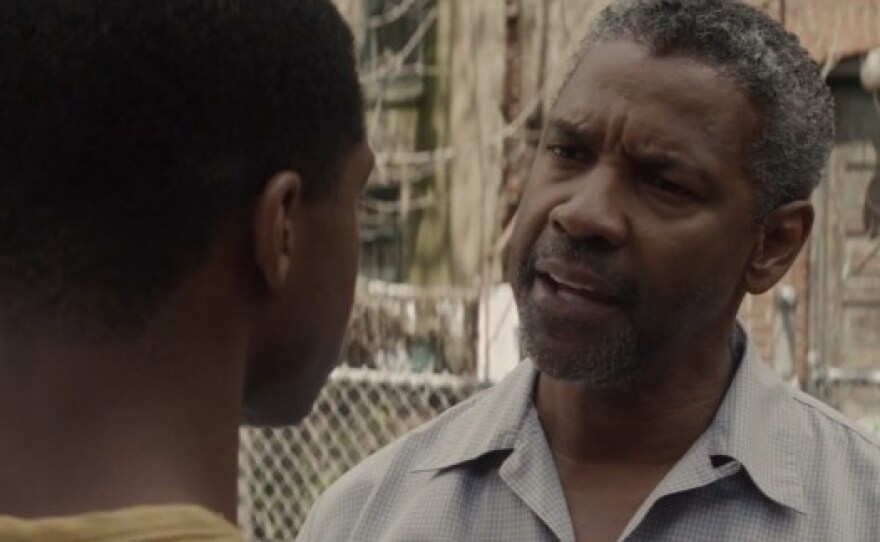August Wilson’s play “Fences” won both a Pulitzer and a Tony in 1987. Now Denzel Washington brings it to the screen with great care.
"Fences" is the sixth play in August Wilson’s 10-part Pittsburgh Cycle. Each play is set in a different decade and explores the evolving black experience in America.
"Fences" is set in 1957 and looks to the Maxson family, especially patriarch Troy (Denzel Washington). Troy is a garbage man who starts the play bristling at the fact that there are no African-American garbage truck drivers. At work he pushes at the boundaries — the fences — that attempt to keep him in "his place."
But at home, he's the one who seems to be building fences, including one to keep his son from ever getting too close.
When Cory (Jovan Adepo) gets up the nerve to confront his father and ask him, "How come you never liked me?" Troy could have embraced the boy and said he loved him. But it is not in Troy's nature to be so open and effusive. Instead, he responds by citing the fact that a man is supposed to take care of his family.
"It's my duty to take care of you. I owe a responsibility to you. I ain't got to like you. Now I dun give you you everything I got to give you. I gave you your life ... Now don't you go through life worrying about whether somebody like you or not. You best be making sure that they are doing right by you."
That reveals a lot about Troy, about his past, about his expectations in life, and about things he might have been denied.
Troy has admirable qualities — as he displays at work in his insistence on being given a promotion he deserved — but he is also a fallible human being.
Wilson is interested in the drama and tragedies of everyday life as opposed to epic tales about larger-than-life characters. He has boundless compassion for the characters he creates and wants to create a window to what life is like for average people struggling with daily challenges.
Washington, who directs and stars as Troy, finds the poetry of Wilson’s dialogue and gives us a compelling drama of a very human scale. He's not a flashy director, and in the case of "Fences" he understands that the words are the stars and provide the pyrotechnics of the story.
It is so refreshing to have a film where the dialogue is rich and full-bodied.
Wilson finds a cadence that is both naturalistic and poetic, and allows dialogue to find both humor and pathos. Thematically, the film looks to a father-son relationship, as well as to the changing dynamics between men and women in a marriage. And then those relationships are set against race relations of 1950s America. Wilson knows how to play the small intimate details off the larger historical ones.
Washington brings Troy to life with great humanity and nuance and he surrounds himself with a highly capable cast to challenge him.
Most notably, Viola Davis as Rose, Troy's wife. She reveals a growing strength and confidence that allow her to break free of some of the boundaries that restricted a black, married woman in 1950s America.
"Fences" (rated PG-13 for thematic elements, language and some suggestive references) is an obvious Oscar hopeful and, in this case, it is also a worthy contender for Academy gold.







